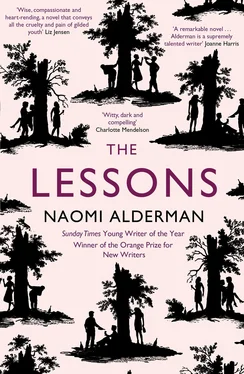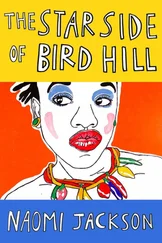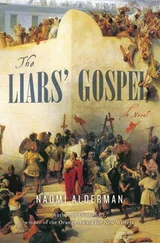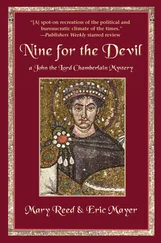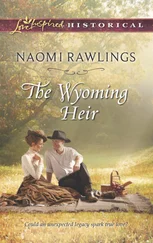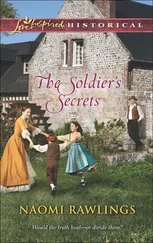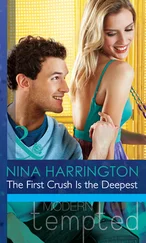8 First year, Preliminary Examinations and the Long Vacation
Mark talks a great deal about sacrifice. It’s one of his themes, although at times he places himself in the martyr’s role and at times in the place of the one for whom sacrifices are made, depending on his mood. After debating the matter with himself — my own ideas do not figure in his theology — he comes to the conclusion that both partners in a sacrifice are one. Like God and His son, the one who demands the sacrifice and the one who is sacrificed are the same.
Mark enjoys these paradoxes. He sometimes returns to the music-box episode in his entanglements but is always careful to point out that it was not a true sacrifice, because I had nothing to lose. At the worst, Isabella would have asked me to pay for the box and Mark would have given me the money. He says it was a piece of theatre. ‘You’ve always been the more dramatic of the two of us, you know. You’re just quieter about it.’
In a sense, he is right. At his moments of high drama he is silent, acting without debate or announcement. I think of him poised like a half-folded penknife on the edge of the water, or of his face like a stone at the funeral. It’s only when there’s nothing worth saying that he can’t stop talking.
‘One slice or two?’ asked Mark, poised bread in hand at the toaster. ‘I don’t know why I say one or two, actually. It could easily be three or four or five or a whole toasted loaf. Or, for that matter, a half a slice, a quarter, an eighth, a sixteenth. James, you understand maths, so maybe you can continue?’
‘A thirty-second,’ I said, looking over my notes again, and munching my Weetabix. ‘A sixty-fourth, a one-hundred-and-twenty-eighth, a two-hundred-and-fifty-sixth, a five-hundred-and-twelfth. I think,’ I said, looking up, ‘that to all practical purposes that’d surely be a crumb of toast. Do I need to go on into atoms?’
‘Certainly not,’ said Jess. ‘You’d never find the atomic marmalade to have with it. Two please. Slices, not atoms. Why don’t you sit down and have some breakfast?’
Mark bounced on the balls of his feet, fiddled with the glass jars of pasta and rice, almost dropped one of the lids, recovered, spun on his heel, replaced the lid and jumped back to attention when the toaster popped.
‘I think better on an empty stomach.’ He frowned. ‘Or is that sex?’
‘You’d better work it out before you start the exam,’ said Jess, ‘or you’ll confuse the invigilators.’
‘Confuse or delight,’ said Mark. ‘Don’t you know you’re allowed to take off anything you like once you’re inside Exam Schools?’
We knew. We knew all such ridiculous, beautiful tales and traditions. We were dressed in subfusc: black trousers, white shirts, black ties, academic gowns and mortarboards — the compulsory attire for university examinations. Franny, who had already started the reading for next year’s sociology paper, called it ‘a typical assertion of financial and intellectual superiority by a potlatch-like act: Oxford students demonstrate that they’re so rich they can afford special exam clothes and so clever they can be brilliant even when uncomfortable’.
But Franny and Simon had finished their exams the day before and were still in bed, and I rather enjoyed the ceremonial. The previous afternoon I’d purchased red carnations, which showed that this was our last day of exams.
Jess finished her toast, took a swig of tea and said, ‘Flower me.’
I pinned the carnation carefully to her gown.
Mark leaned forward to watch and when I was finished said, ‘Now do me,’ and puffed out his chest towards me.
I pinned a flower to him willingly. Things had changed between us since the music box. Not drastically, not violently, but the change was clear to me. I felt warmer towards him.
Jess leaned up on tiptoes for a kiss and Mark hugged me. ‘Champagne on the lawn at 6, all right?’ he said.
‘Good luck,’ I said.
‘See you on the other side,’ he said.
Exams were over just before the longest day in the year, when the light of the evening lasted until past 10 p.m., and the night was gentle. We lay in the sun on the lawn that afternoon, our bodies extended like spokes around the sundial, warmed and drowsy. Mark rolled a joint and passed it round.
Franny lay with her head in Simon’s lap as they compared choices, rubric by rubric.
She said, ‘You did the one on de Gaulle? It didn’t look like it offered much opportunity to be clever.’
Simon patted her curls gently. ‘I’m not as clever as you though, so it doesn’t matter.’
Franny made a ‘come come’ noise, but I could tell this remark had pleased her.
Emmanuella smoked a long white cigarette from a packet with a Scandinavian name, leaned back and streamed the smoke into the air. She was wearing a loose orange halter dress, her hair pouring down her bare back.
She said, ‘I was not surprised by any question. Not at all.’
Simon leaned forward, pulled her hair and said, ‘Stop showing off.’
Emmanuella pinked and pouted and took some more champagne.
The bottle passed around again. We brought out food and wound the radio cord through the grass to play Fox FM, tinny and distorted. When ‘Boys and Girls’ came on, with its creaking, insistent beat, Mark and Franny danced on the lawn. The sky turned from pale blue to a deeper, more magnanimous hue. It became a glorious, silk-black evening filled with glow-worms, a plethora of tiny lights winking and flashing from the bushes, like the stars which were that night almost musically bright.
At midnight, Simon yawned and said, ‘Mates, I’ve got to get to bed.’
After the general protest had died down he said, ‘Got to. Start work on Thursday, Dad’s coming tomorrow at 8 and I haven’t started packing yet.’
There was more argument. The champagne bottle lolled on the blue velvet grass and the stars swam, and eventually it was Mark who said, ‘He’s got work. He has to.’
And Simon said, ‘I’ll see you all in a couple of weeks anyway, right?’
‘At your parents’, yeah,’ said Jess.
‘Not me,’ said Emmanuella. ‘I must be in Madrid all summer.’
And Simon let out a roar and charged at Emmanuella. She screamed as he lifted her up to the stars and crunched a martini glass under his sandal, letting out all the glitter and bubbles. He spun her around, the orange dress streaming out behind her like underwater seaweed, and crushed her to him in a hug and set her down giggling and gasping on to the grass.
He looked around.
‘Anyone else?’
We shook our heads.
‘Right then,’ and he beat his chest at the sky and he and Franny went to bed.
Not long after that Lars arrived for Emmanuella. He crashed through the garden to reach us, and when he emerged, he appeared downcast and serious, even though he had arrived so late, and so clumsily and with such an obvious purpose. Emmanuella allowed him to help her to her feet and I thought, I never understood her at all, never knew a particle of who she was. She wished us goodnight graciously and the orange dress swirled in the grass and I could tell that Lars was impatient to his fingers’ ends to be touching her. I found I felt amused, with only the tiniest flicker of smoky jealousy at the edge of my thoughts.
And then we were three. We sat among the remnants of the picnic, eating an olive or quail’s egg from time to time. We lit several of the storm-lantern candles dotted around the edges of the lawn and they cast a gentle light. We drank a little more, peering into the bottles’ ends to see whether every drop had gone, and buoyed by our own lightness we stayed up a little longer and a little longer.
Читать дальше
